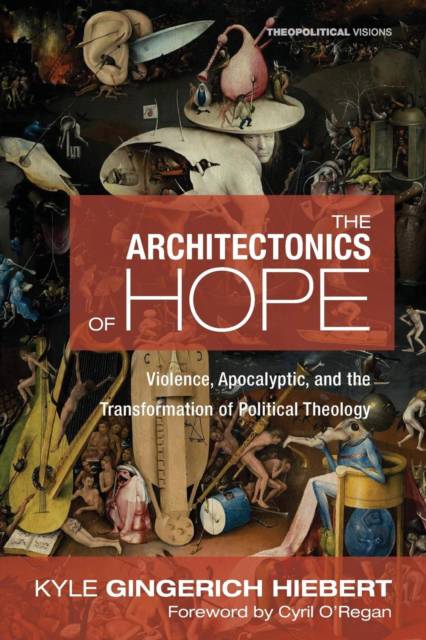
- Afhalen na 1 uur in een winkel met voorraad
- Gratis thuislevering in België vanaf € 30
- Ruim aanbod met 7 miljoen producten
- Afhalen na 1 uur in een winkel met voorraad
- Gratis thuislevering in België vanaf € 30
- Ruim aanbod met 7 miljoen producten
Zoeken
The Architectonics of Hope
Violence, Apocalyptic, and the Transformation of Political Theology
Kyle Gingerich Hiebert
€ 41,95
+ 83 punten
Uitvoering
Omschrijving
The Architectonics of Hope provides a critical excavation and reconstruction of the Schmittian seductions that continue to bedevil contemporary political theology. Despite a veritable explosion of interest in the work of Carl Schmitt, which increasingly recognizes his contemporary relevance and prescience, there nevertheless remains a curious and troubling reticence within the discipline of theology to substantively engage the German jurist and sometime Nazi apologist. By offering a genealogical reconstruction of the manner and extent to which recognizably Schmittian gestures are unwittingly repeated in subsequent debates that often only implicitly assume they have escaped the violent aporetics that characterize Schmitt's thought, this volume illuminates hidden resonances between ostensibly opposed political theologies. Using the complex relationship between violence and apocalyptic as a guide, the genealogy traces the transformation of political theology through the work of a surprising collection of figures, including Johann Baptist Metz, John Milbank, David Bentley Hart, and John Howard Yoder.
Specificaties
Betrokkenen
- Auteur(s):
- Uitgeverij:
Inhoud
- Aantal bladzijden:
- 234
- Taal:
- Engels
- Reeks:
- Reeksnummer:
- nr. 21
Eigenschappen
- Productcode (EAN):
- 9781498209410
- Verschijningsdatum:
- 19/09/2017
- Uitvoering:
- Paperback
- Formaat:
- Trade paperback (VS)
- Afmetingen:
- 152 mm x 226 mm
- Gewicht:
- 299 g

Alleen bij Standaard Boekhandel
+ 83 punten op je klantenkaart van Standaard Boekhandel
Beoordelingen
We publiceren alleen reviews die voldoen aan de voorwaarden voor reviews. Bekijk onze voorwaarden voor reviews.











